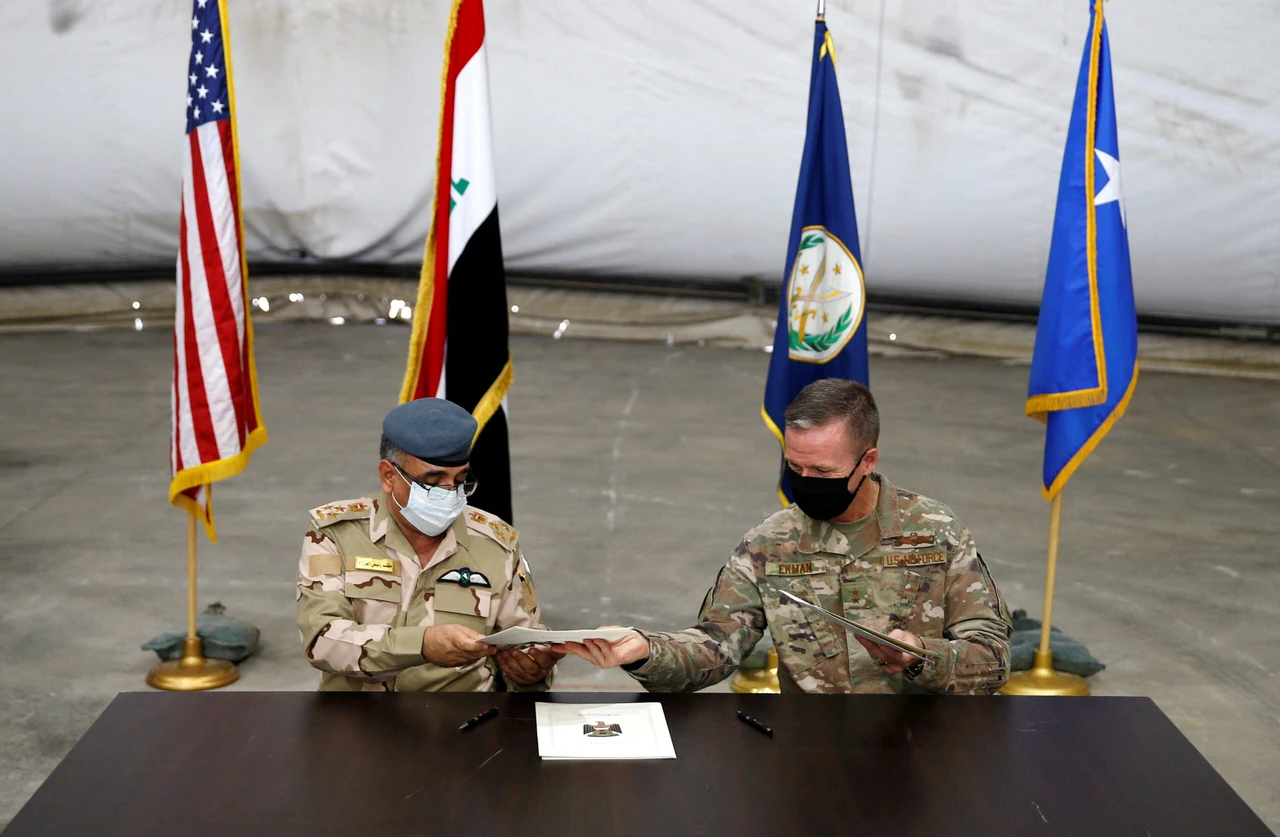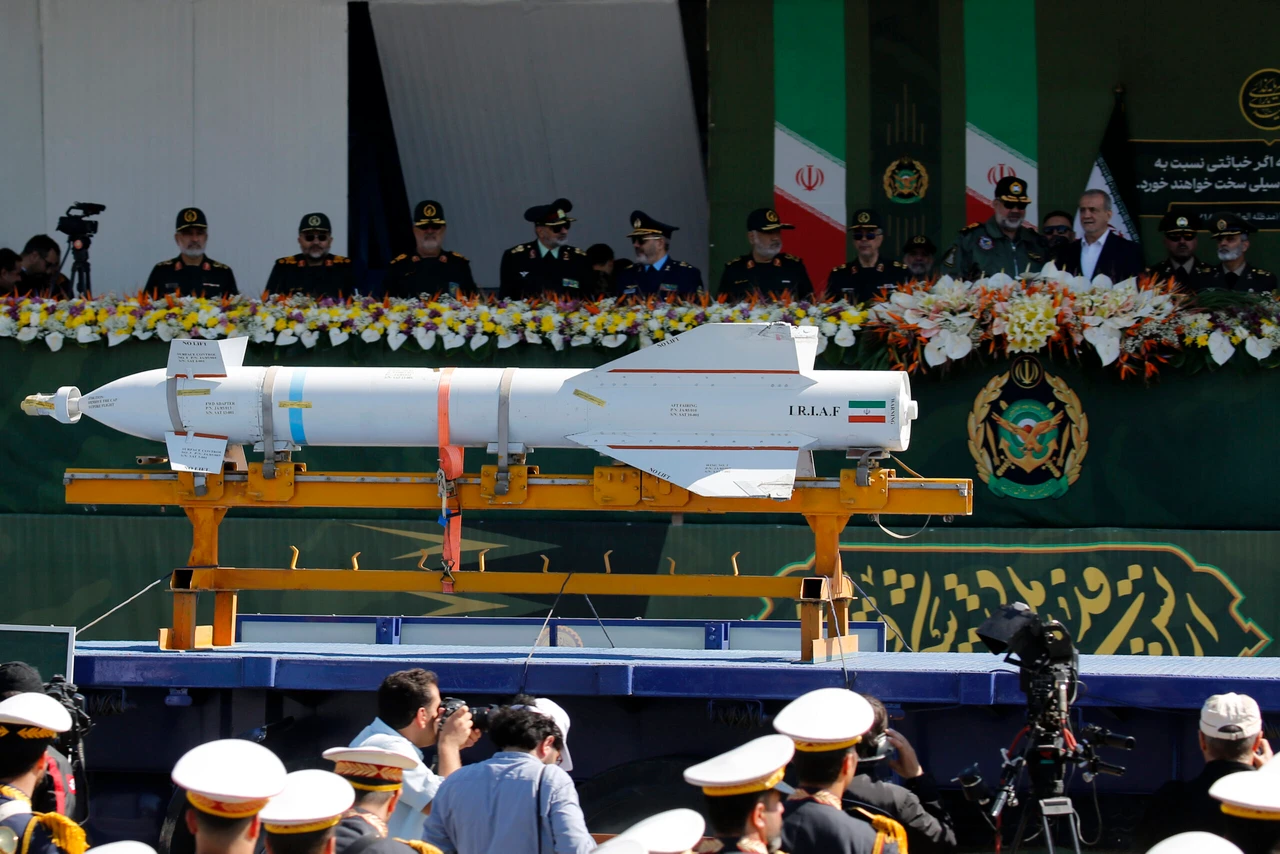Iraq plans drawdown of US-led forces starting September
 Maj. Gen. Kenneth P. Ekman, Deputy Commander of Combined Joint Task Force-Operation Inherent Resolve, signs documents with Brigadier General Salah Abdullah during a handover ceremony of Taji military base from US-led coalition troops to Iraqi security forces, in the base north of Baghdad, Iraq August 23, 2020. (Thaier Al-Sudani via REUTERS)
Maj. Gen. Kenneth P. Ekman, Deputy Commander of Combined Joint Task Force-Operation Inherent Resolve, signs documents with Brigadier General Salah Abdullah during a handover ceremony of Taji military base from US-led coalition troops to Iraqi security forces, in the base north of Baghdad, Iraq August 23, 2020. (Thaier Al-Sudani via REUTERS)
Iraq intends to start the withdrawal of troops from the U.S.-led military coalition in September, with a complete end to the coalition’s mission by September 2025, according to four Iraqi sources.
Some U.S. forces are expected to remain in an advisory capacity under a newly negotiated agreement. Discussions between Iraqi officials and their U.S. counterparts are taking place this week in Washington at a security summit.
No formal agreement has been reached on the coalition’s end or the specific timeline, both Iraqi and U.S. officials noted.
Ongoing discussions and political implications
U.S. State Department spokesperson Mathew Miller stated in a briefing that meetings are ongoing to determine how to transition the coalition’s mission in light of the threat posed by the Daesh terrorist group but he provided no further details.
The U.S.-led forces initially invaded Iraq in 2003, toppling former leader Saddam Hussein, and withdrew in 2011, only to return in 2014 to lead the coalition against Daesh. Currently, around 2,500 U.S. troops are stationed in Iraq as part of this coalition, which comprises over 80 member countries.
These troops are based in three main locations: Baghdad, western Anbar province, and the northern Kurdistan region. While the exact number of troops to be withdrawn is unclear, Iraqi sources expect most to leave, though U.S. officials suggest many may stay under a new advisory mission.
Security concerns and strategic interests
The U.S. aims to maintain some military presence in Iraq to support its operations in Syria, where around 900 U.S. troops are stationed. This issue is politically sensitive, with Iran-aligned Iraqi factions pushing to expel the U.S. forces, while U.S. officials seek to avoid bolstering Iran’s influence.
Washington and Baghdad began talks on the coalition’s future in January, following a series of attacks between Iran-backed Shi’ite groups and U.S. forces triggered by the Israel-Hamas war.
An agreement to reduce the coalition’s presence could be a political win for Iraqi Prime Minister Mohammed Shia al-Sudani, who faces pressure from Iran-aligned factions to remove U.S. forces but seeks to balance Iraq’s ties with both Washington and Tehran.



